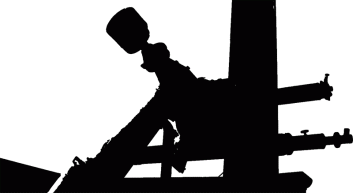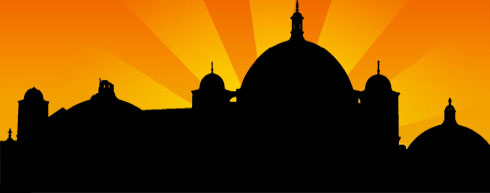Tea, Talk and Telescope
Patrick Moore Lecture Series




- Page Links
Want to know more about astronomy? Want to learn how to observe? Want to know what's currently in the sky?
Next Talk: Astrobiology - the hunt for alien life by Dr. Lewis Dartnell
Welcome & introduction
Want to know more about astronomy? Want to see the wonders of the Universe?
Welcome to our public outreach and events pages. Talk, Tea and Telescope is a series of public lectures organised by the University of Birmingham Astronomical Society and the School of Physics and Astronomy. These lectures are aimed at members of the general public and are free to all. Future event details will be posted here accordingly. The lectures generally take place on a Thursday evening and are followed by night sky observing with a combination of telescopes focusing on the Astronomical society's historic Grubb telescope (dating from 1872) - of course this is weather dependent and if we are beaten by the weather then you can guarantee that there will be time for tea and discussion after the talks.
Astrobiology - the hunt for alien life
'Astrobiology' is a brand new field of science, encompassing research into the origins and limits of life on our own planet, and where life might exist beyond the Earth. But what actually is 'life' and how did it emerge on our own world? What are the most extreme conditions terrestrial life can tolerate? And where in the cosmos might we reasonably expect to find ET? Join Dr. Lewis Dartnell on a tour of the other planets and moons in our solar system which may harbour life, and even further afield to alien worlds we've discovered orbiting distant stars, to explore one of the greatest questions ever asked: are we alone...?
The next talk in the Tea Talk and Telescope program will be given by Dr. Lewis Dartnell. The talk will be on Thursday 23rd January, 2014 at 7:30pm. Tea and coffee will be available from 7:00pm. For more general information about our series of talks please see here.
This talk is part of our activities for BBC Stargazing Live 2014. You can find its Things To Do page here as well as other Stargazing Live 2014 activities in your area.
Talks Location: Unless otherwise stated the talks take place in the Large Lecture Theatre (S02) of the Poynting Physics Building (R13 on University Map) at the University of Birmingham. Directions to the University can be found on the University's visitor information pages and a campus map can be found here.
Our last talk: 2013 Space highlights and future challenges by Sue Horne, MBE
As an Executive agency of the UK government the UK Space Agency (UKSA) are responsible for all space exploration from the UK, and are our representatives for all negotiations with other agencies. 2013 has brought with it a whole host of new space missions, many of which have caught the public imagination. Sue Horne MBE, the Space Exploration Programme Manager for the UKSA, will guide us through some of the highlights of these missions and discuss the future challenges that face the UK in furthering our space programme.
Other Events: We run a variety of events aimed at the public and students, see our outreach pages, for example on Oct 4th 2008 we ran "Birmingham Space Day" - this event was aimed at all ages of the general public and featured talks and interactive workshops (such as making rockets and mars landers). For more information see the space day site. A similar event was held on March 14th 2009 to celebrate "Pi Day - the mathematics of the Universe.".
Past Talks: In the past we have had talks by: Lucy Hawking (author), Alastair Reynolds (author), Dr David Malin (AAO), Dr Fred Watson (AAO), Dr David Whitehouse (BBC Science Correspondent), Mr Mario di Maggio (ThinkTank Planetarium Director), Dr David Gregory (BBC West Midlands), Prof. John Brown (Royal Astronomer for Scotland and Glasgow University), Prof Ian Morison (Jodrell Bank and Gresham College), Dr Brian Cox (Manchester University, CERN), Dr Paul Roche (Cardiff University, FT), Dr Martin Hendry (University of Glasgow), Dr Mike Hapgood (RAL), Dr Lucie Green (MSSL) and Prof Peter Kalmus (QMUL). Much more info can be found on our talks pages.
Some of these talks have been funded by a Science and Technology Facilities Council Grant.